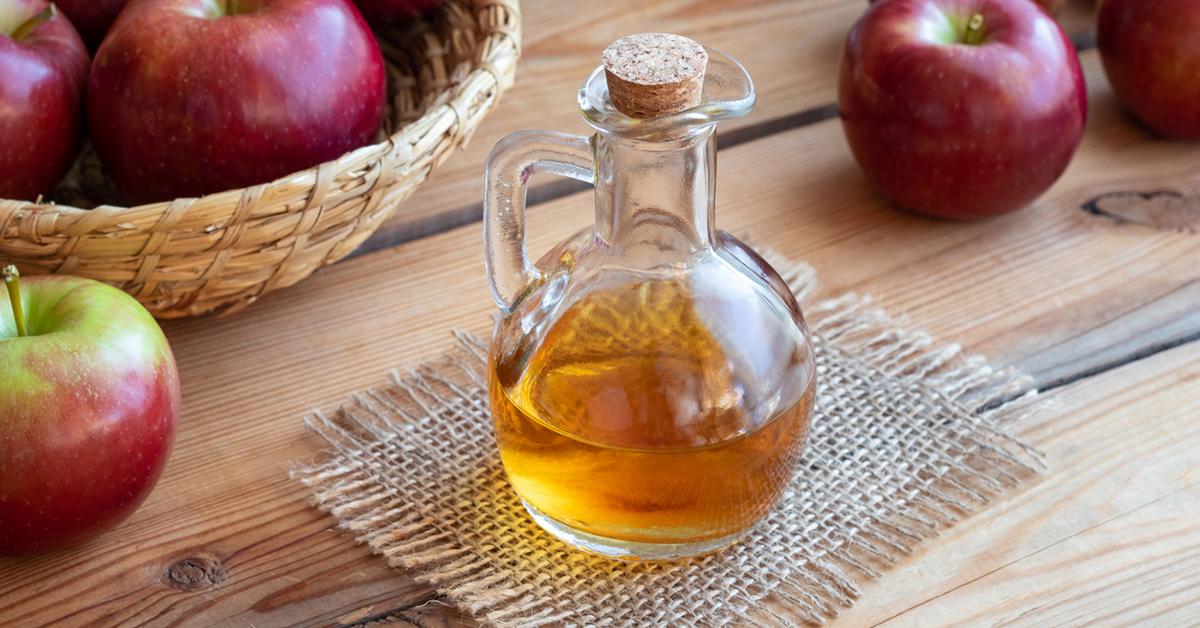These Remedies Will Relieve Your Heartburn – Naturally
If you have ever experienced a burning pain in your upper or mid-chest, a pain that may worsen while lying down, then you know the frustrating discomfort of heartburn.
Updated Dec. 2 2019, 12:14 p.m. ET

If you have ever experienced a burning pain in your upper or mid-chest, a pain that may worsen while lying down, then you know the frustrating discomfort of heartburn. Heartburn is classified by this signature pain or discomfort in the chest and it may involve the neck or throat. Typically, symptoms of heartburn can worsen when lying down, but heartburn does not necessarily have to be connected with an underlying disease.
If you’ve ever tried a super spicy food, drank a little too much alcohol, or even worn tight clothing, you may have experienced some unpleasant symptoms of heartburn.
While heartburn is a word commonly tossed around, the symptoms of it could be indicative of another issue like the ones mentioned above or GERD, gastroesophageal reflux disease.
No matter the cause of your heartburn, the good news is there is a way to treat it and treat it naturally. Keep reading for more on heartburn and how you can treat it naturally!
What does heartburn feel like?
Heartburn is categorized by a burning pain or discomfort in the upper or mid-chest. It could also target the neck and throat and symptoms of heartburn may exacerbate if you are lying down.
According to Medical News Today, if you are experiencing heartburn, you may feel a burning sensation in your chest, rising pain that may reach up to your jaw, a burning pain, indigestion, and/or a foul taste in your mouth. Other symptoms could include feeling heat in your chest and throat, which is typically caused by stomach acid, feeling gassy, and flatulence.
What causes heartburn?
Heartburn is generally looked at as a common problem that happens when some of your stomach’s contents are forced back up into the esophagus. This is called acid reflux. Persistent acid reflux is called GERD or gastroesophageal reflux disease and is categorized by acid reflux that occurs more than twice a week.
Other causes for heartburn are more common and therefore, not a cause for concern. You could experience heartburn after eating spicy foods, drinking alcohol, overeating, or even while wearing tight clothing. Another cause of heartburn could also be lifestyle: lack of exercise, diet, and obesity have all been linked to heartburn as well. Any of these things could stimulate an increase in stomach acid secretion, which then sets the body up for acid reflux.
Are heartburn drugs dangerous?

According to Medical News Today, proton pump inhibitors (PPIs) are generally prescribed to treat gastrointestinal conditions that involve an increase in acid secretion. Commonly prescribed PPIs include Aciphex, Dexilant, Nexium, Prevacid, Prilosec, and Protonix and a recent study in The BMJ found these prescriptions to increase a person’s risk of death from chronic health conditions. These prescriptions have been linked to cardiovascular disease, chronic kidney disease, and even stomach cancer.
Alternative medication to proton-pump inhibitors include antacids and histamine-2 blockers, but those too can cause adverse side effects in patients.
What natural remedy is good for heartburn?
With some of the most common heartburn drugs out there recently being linked to serious — if not fatal — health complications such as stomach cancer, it’s no wonder more and more people are searching for natural alternatives. If you are looking for natural remedies for heartburn, there are a few important lifestyle changes you could make that would ultimately reduce your risk of heartburn.
Monitor Your Diet
Believe it or not, diet is a huge player in heartburn symptoms. If you notice that you experience heartburn after eating a specific type of food (such as spicy foods) or imbibing a certain drink (such as alcoholic beverages), then you may want to limit your exposure to that food or beverage. You should try to limit your fat intake whenever possible. Common triggers to avoid include alcohol, caffeine, spicy foods, full-cream milk, soft drinks, and acidic foods such as tomatoes, lemons, or orange juice. If you experience heartburn frequently, you should also try to eat smaller meals more frequently, as heartburn can occur as a result of overeating.

Exercise
Exercise can do wonders for mitigating the symptoms of heartburn. Keeping fit through regular exercise can reduce your risk of heartburn, but you may want to avoid heavy lifting and straining as those two activities can actually cause heartburn. If you are overweight, exercising may be crucial in combating heartburn. Losing weight, if it is appropriate for the person, can help reduce one’s risk of heartburn.
Wear Loose Clothing
Wearing tight clothing can actually stimulate heartburn symptoms, causing the acid in your stomach to make its way back up to your esophagus. You can prevent this by wearing looser clothing, especially if you feel the symptoms coming on.
Drink Baking Soda Mixed With Water
According to Healthline, drinking a mixture of baking soda and water can actually stop heartburn symptoms while they are happening. Baking soda neutralizes the acid in your stomach, so it can actually ease the symptoms of a heartburn episode in real time. To try this remedy, dissolve a teaspoon of baking soda in a glass of water. You’ll want to drink it slowly.

Try Some Apple Cider Vinegar
Doesn’t it seem like ACV is the solution to almost everything? Heartburn is no exception. Apple cider vinegar may neutralize stomach acid if imbibed in a diluted form. Dilute apple cider vinegar with water after a meal. This home remedy is based on anecdotal evidence; however, as there is no current research to support ACV as a heartburn home remedy.
Eat Some Ginger
Ginger is known for its amazing health benefits, specifically for your stomach. It can help if you are feeling nauseous, but it can also relieve heartburn, too. There are many different ways to ingest ginger in order to reap the anti-heartburn benefits of this wondrous root. You could snack on candied ginger, grate ginger root into your food, or steep ginger tea. Note: You may want to stay away from ginger ale, however. Carbonated drinks aren’t a good idea when you have heartburn — in fact, soft drinks actually exacerbate heartburn symptoms.

Chew Gum
This may be the easiest solution of all but chewing gum can actually help reduce the symptoms of heartburn. According to a 2014 study, chewing gum for 30 minutes after ingesting a meal can reduce heartburn. The thought process behind why this works is that chewing gum actually stimulates your saliva production and swallowing; it’s thought that these processes could actually clear the stomach acid from your esophagus, making heartburn symptoms go away.
Other natural ways to mitigate symptoms of heartburn include avoiding eating immediately before lying down, sitting up straight while eating, and stopping smoking.
Are heartburn, constipation, and gas related?
Oftentimes, these three symptoms accompany each other. So, are heartburn, constipation, and gas related? Well, they could point to another complication such as Irritable Bowel Syndrome (IBS) or again, acid reflux. Common symptoms of IBS can include flatulence, acid reflux, heartburn, and, depending on what kind of IBS you have, constipation as well. If you are experiencing any of these symptoms, you may want to consult your general practitioner.
Can heartburn cause anxiety?
Researchers haven’t quite figured out the correlation between acid reflux and anxiety, but anxiety and stress can certainly trigger symptoms of GERD. Both GERD and anxiety can be categorized by chest pain, so it’s also possible that worrying about the cause of the pain could induce anxiety or a panic attack.
According to Health.com, anxiety can cause heartburn and therefore exacerbate symptoms of GERD. Panic attacks can also cause chest pain, which can then make symptoms even worse. In fact, a person can experience heartburn from anxiety and heartburn from GERD all at the same time. Again, the connection between the two is virtually unknown right now, but it is definitely recorded that these two inform and worsen each other.
If you experience anxiety-related heartburn, you may want to try mitigating symptoms with exercise and meditation. Additionally, if you experience separate anxiety symptoms, you can try relieving your anxiety symptoms with natural, at-home remedies such as aromatherapy and chamomile tea.
Can heartburn cause bloating?
Some people experience symptoms like heartburn, bloating, constipation, or abdominal pain all at the same time. Acid reflux could very well cause bloating, but other factors such as food allergies, lactose intolerance, and other digestive disorders could also cause the discomfort of heartburn. If you experience several symptoms at once, you may want to consult your general practitioner.